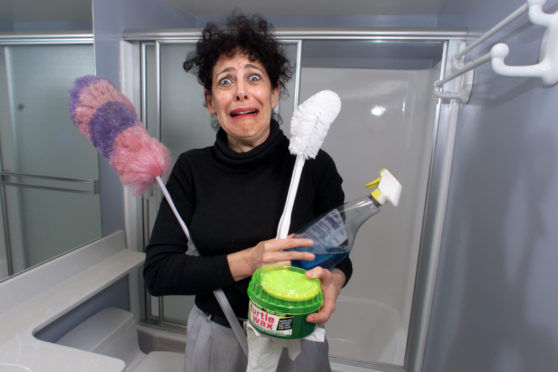In my house there are some jobs that none of us want to do.
Usually these involve cleaning. We do not like cleaning the inside of the kitchen bins, we hope others will clean the bathroom and toilet, and we leave the cleaning of the oven and fridge to someone else if we can.
We never say to each other ‘I don’t want to do this, will you do it?’. Instead we quietly hold off, waiting for someone else to step up and do what is necessary. And of course, the longer we wait, the worse such tasks become. Eventually one of us gives in and reluctantly gets on with it.
In society there are lots of cleaning and service jobs that we take for granted. In shops, cafes and restaurants toilets are cleaned. When we eat out someone else sees to the washing of the dishes and the cleaning of the tables. In parks and public spaces, others keep the spaces tidy and clear of rubbish.
Quietly, often at anti-social hours, people see to these things so that we can have a good time and enjoy ourselves. Those that clean up after us are usually on low pay, often minimum wages. They are usually out of sight, and certainly out of our minds.
This kind of service extends to personal care of the elderly and infirm. Those that can no longer look after themselves are served by carers, who visit homes to wash and care for the bodies of many of the oldest members of our society. The kind of physical care that is lovingly extended to babies within a family setting is commonly outsourced to strangers for elderly relatives. This necessary service is carried out, usually with kindness, by another group of low-paid workers.
All this is in my mind because this is Holy Week and today is Maundy Thursday. This week Christians remember what Jesus did day by day as he came towards the crucifixion. On Maundy Thursday we remember that on the night before he died, Jesus had a meal with his friends at which he took removed his outer clothes, took up a towel and bowl, and washed the feet of his friends. This was an important custom and a necessity. The host of any meal would have a servant come and wash the feet of the guests.
So Christians are reminded today that the most important deeds are acts of service, especially those that are done by those we might consider to be the least in society. We are reminded to turn our attention to those who serve.
Maundy Thursday reminds us that Jesus had an upside-down view of things. He said that those who were the greatest were the servants, and he asked those who followed him to be like servants wherever they found themselves. For me this means trying a little harder at home and, if I am able, doing more than my share of the dirty jobs. It also means having respect for those who do the unpleasant servant jobs in wider society.
All of us might begin by appreciating what is done for us, and saying thank you where appropriate.
This weekend many of us will be out and about enjoying the bank holidays, taking some extra time with friends and family. We might go shopping, visit places of interest, or eat out. It is a celebration weekend, so we might be treating our families, friends and ourselves to something special. Every place that we go will have been cleaned before our arrival, and after we have departed. Food will be served to us by those who are not having the weekend off, but are at work. This weekend many will work long hours on low wages while others enjoy leisure time. Today not many of us have servants in our own homes, but we certainly have them when we go out.
So how about taking more notice of what is being done for us in cafes and restaurants, public spaces, and even at home.
This weekend we could take the time to say ‘thank you’ to anyone we see clearing up after us, and to leave a generous tip for those who have served us.
There are lots of dirty jobs, and someone has to do them. Maundy Thursday reminds us that no one is too special to do a dirty job. So let’s roll up our sleeves and get stuck in.
Serving our neighbours, friends and family in this way might be an unusual gift, but is more in keeping with the spirit of Holy Week and Easter than chocolate, although, of course, that is very nice as well.
The Rt Rev Anne Dyer is Episcopalian Bishop of Aberdeen and Orkney and Scotland’s first female bishop











